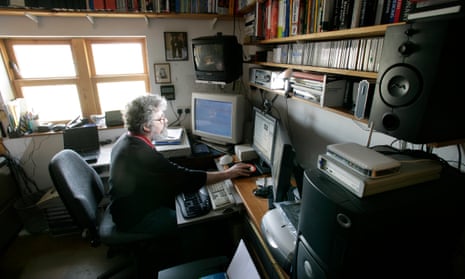Earlier last month the United Nations’ General Assembly sat down to discuss, among a multitude of other looming sociopolitical issues, whether or not access to the internet should be a basic human right. Stretching back to 2009, this debate has been taken to the floor five times to no avail, but this time round a resolution was adopted (.pdf), co-sponsored by 70-odd countries.
The Guardian’s product and service reviews are independent and are in no way influenced by any advertiser or commercial initiative. We will earn a commission from the retailer if you buy something through an affiliate link. Learn more.
Given the degree of influence a connection to the internet can have on a person’s life in the 21st century – from seeking government services to expressing an opinion on social media – the UN resolved that any human rights one has offline must be guaranteed online as well.
In light of this development in the digital space, we’ve produced a four-part series on Chips with Everything, our technology podcast. With the help of industry experts – including internet co-creator Vint Cerf and the CEO of the World Wide Web Foundation Anne Jellema – we investigate the immediate and distant implications, how it might affect internet rollout in developing countries, and much more. You can listen to the individual episodes below, or listen to all four in this playlist.
Episode 1
An overview of the United Nations’ resolution. While it may seem straightforward, with the complex nature of human rights law considered, the resolution is far from simple. Guests include UN special rapporteur on freedom of opinion and expression David Kaye, co-creator of the internet Vint Cerf, and human rights lawyer Adam Wagner.
Episode 2
Focusing on Estonia, one of the first countries in the world to consider internet to be a human right, and how it rapidly transformed from a Soviet state to digital utopia. To explore, we speak to foreign minister Marina Kaljurand and Skype’s first employee and co-founder of TransferWise Taavet Hinrikus.
Episode 3
In the face of the UN’s resolution, we flip the coin and look at the the threats to net neutrality and unrestricted internet access. We consult with World Wide Web Foundation chief executive Anne Jellema and director of strategy for Free Press Tim Karr.
Episode 4
We explore internet accessibility in developing countries and discuss how the United Nations’ resolution might increase widespread access in said countries. Guests include the Guardian’s global development desk’s Liz Ford, the World Wide Web Foundation’s Africa regional co-ordinator Nnenna Nwakanma, and lead council at the World Bank David Satolas.
After listening to the series, what do you think? In a society that places such a wide focus on all things digital, should internet access be a human right? Should governments and ruling bodies be sanctioned when they withhold those rights? In the future, what should the internet and our relationship with it look like? Let us know in the comments section below.
- Subscribe to Chips with Everything, our digital culture podcast, on iTunes or on your favourite podcasting app
- Have a story about how tech has worked its way into your life? Get in touch at guardianchips@gmail.com or on Twitter @guardianaudio

Comments (…)
Sign in or create your Guardian account to join the discussion